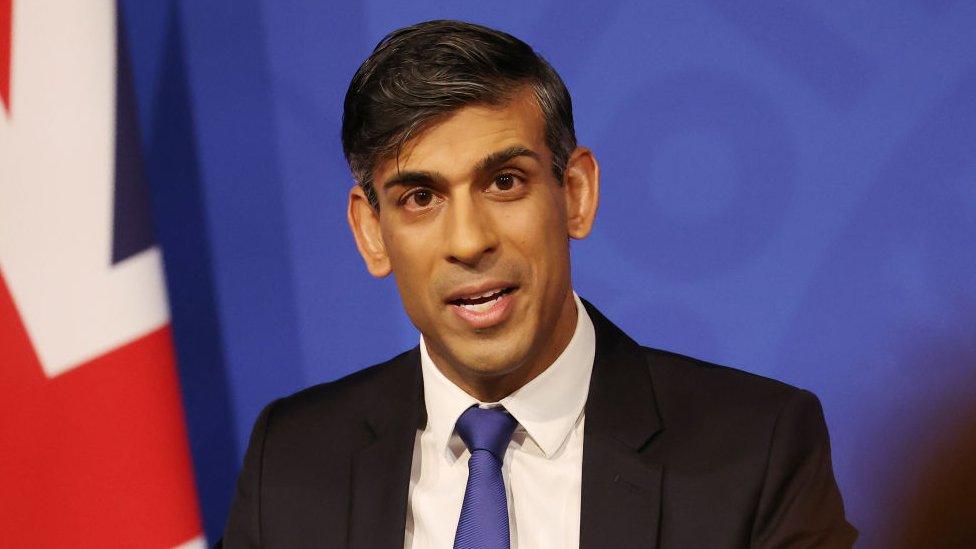Mark Drakeford: How Covid thrust a quiet first minister into the limelight
- Published
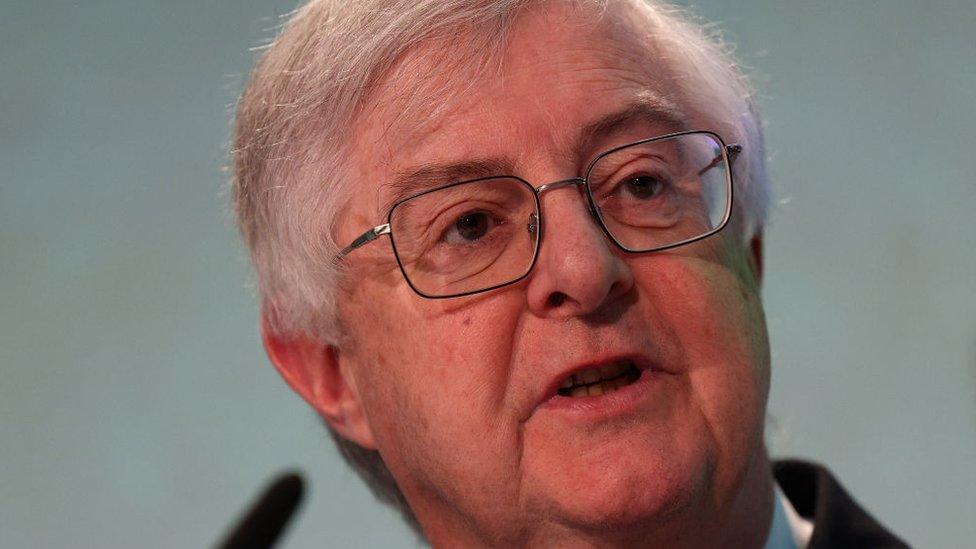
Mark Drakeford's role at the top of Welsh politics goes back decades
Mark Drakeford has been by far the most high profile Welsh first minister since powers were first transferred from Westminster to Cardiff in the late 1990s.
A man who conceded during the 2018 Welsh Labour leadership campaign that he was not looking forward to being questioned in the Welsh Parliament, and got nervous before media interviews, became front and centre of people's lives in a way few could have imagined.
Instinctively quiet and understated, he was thrown into the limelight by the catastrophe that was coronavirus.
Suddenly he was facing cross-examination by the UK media on television - and requests from members of the public for selfies.
He also imposed highly intrusive restrictions on individuals, the likes of which had not been seen outside of wartime.
He became deeply unpopular with some as a result, particularly when his decisions differed from those in England.
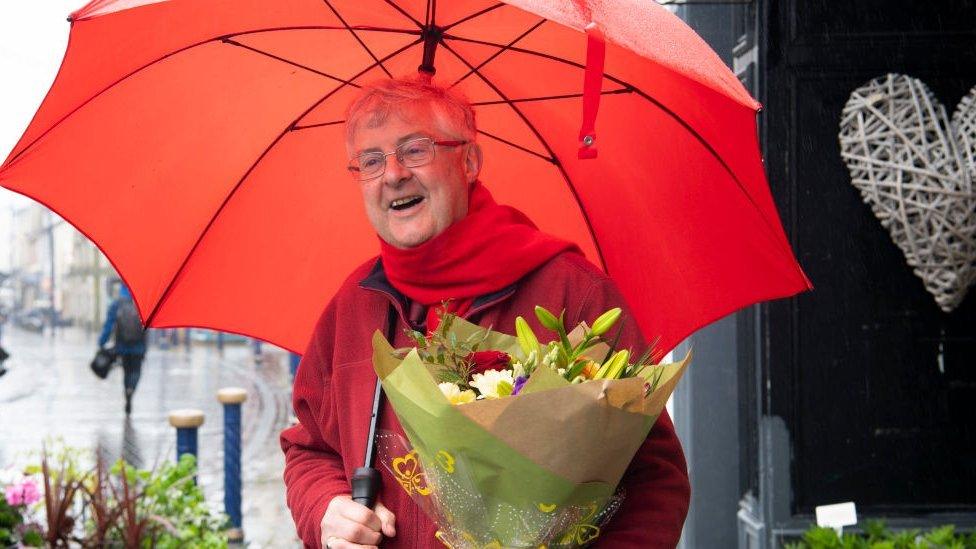
Celebrating Labour winning 30 of the 60 Senedd seats at the 2021 Welsh election
But that approach also proved to be the making of him as first minister, showing a stark contrast in style to former Prime Minister Boris Johnson.
Many credited his approach to Covid for Welsh Labour's victory at the Senedd election in 2021, where the party matched its best-ever result and won half of the 60 seats in Cardiff Bay.
What have been Mark Drakeford's challenges?
Two years later, his transport policies have proved divisive and dominated his government's year.
The decision to switch Wales' default speed limit from 30mph to 20mph, to scrap the building of major new roads and problems with bus funding sparked rare disquiet in Mr Drakeford's own party.
A recent ITV Wales poll suggested Mark Drakeford's approval rating had slid, external.
Coronavirus was also the backdrop to the huge challenges his government has faced over the performance of the Welsh NHS.
Mark Drakeford was filmed by S4C saying Boris Johnson "really is awful" after a meeting with him
Issues over funding, staff pay, an ageing population and Wales' industrial legacy have been compounded by the impact Covid had on the health service, together with high inflation and energy prices.
Continuing problems at Wales' largest health board, Betsi Cadwaladr, have been embarrassing for Welsh Labour, which presents itself as the party of the NHS.
Mr Drakeford has faced mounting criticism of Labour's stewardship of the NHS, but believes Conservative UK ministers are ultimately responsible for many of the difficulties the UK faces, including with health.
He has on occasion lost his temper with Conservatives in the Senedd chamber, exploding with anger in autumn 2022 over criticism from the opposition party's Senedd leader Andrew RT Davies of ambulance response times.
Mark Drakeford reacting to a series of questions about poor ambulance response times
With his face growing redder, he furiously bellowed at Mr Davies for thinking he could "turn up here this afternoon and claim some sort of moral high ground?"
How did Mark Drakeford get on with the Conservatives?
Mark Drakeford saw a succession of four different Conservative prime ministers in Downing Street during his time in office - Theresa May, Boris Johnson, Liz Truss and now Rishi Sunak.
His dealings with Mrs May might be characterised as constructive, albeit as she struggled with her own party's MPs over Brexit.
But he became contemptuous of Boris Johnson, at one point saying "dear me, he really, really is awful" while being filmed after connecting remotely to a Covid meeting led by the then prime minister in 2020.
He did not even receive the customary phone call to a devolved leader from Liz Truss, during her brief spell running the UK government.
More recently, with PM number four Rishi Sunak, the relationship has returned to the more cordial end of the spectrum.
Mark Drakeford will be proud of grasping the nettle of reforming the Welsh Parliament during his time leading the Welsh government, but it will be left to his successor to see through changes including a new electoral system and an increase in the number of Senedd members.
The reforms were helped by striking a co-operation agreement with Plaid Cymru in the Senedd in late 2021, on a wide range of policies.
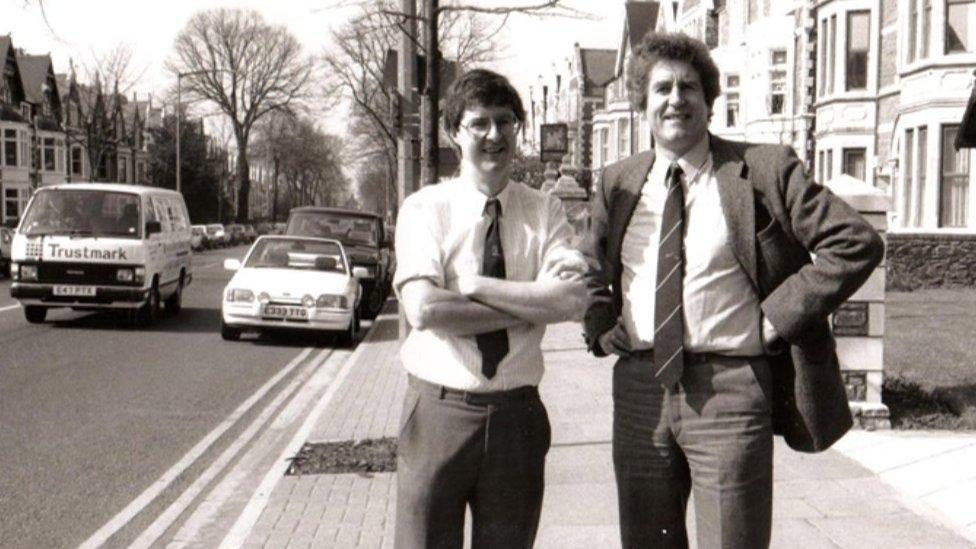
Mark Drakeford (L) has described the late Rhodri Morgan (R) as his mentor
There have been lighter moments. The time the first minister waxed lyrical on the joys of cheese, external, during an online Q&A with the public, remains etched on the memories of many of us.
How did Mark Drakeford's career start?
Mark Drakeford's importance in Welsh politics goes back decades.
He was main policy adviser to the previous first minister Rhodri Morgan.
As an ex-probation officer and professor of social policy, Mark Drakeford provided the intellectual underpinning to the man widely seen as having stabilised Welsh devolution after its chaotic early months.
Later being elected to Cardiff Bay, taking over Rhodri Morgan's Cardiff West seat, Mark Drakeford joined Carwyn Jones' government, taking charge of health, local government and the public finances in turn.
With strong support from the left of Labour in Wales when Mr Jones announced he was stepping down as leader in 2018, Mr Drakeford quickly became the front-runner in the race to replace him and stayed there.
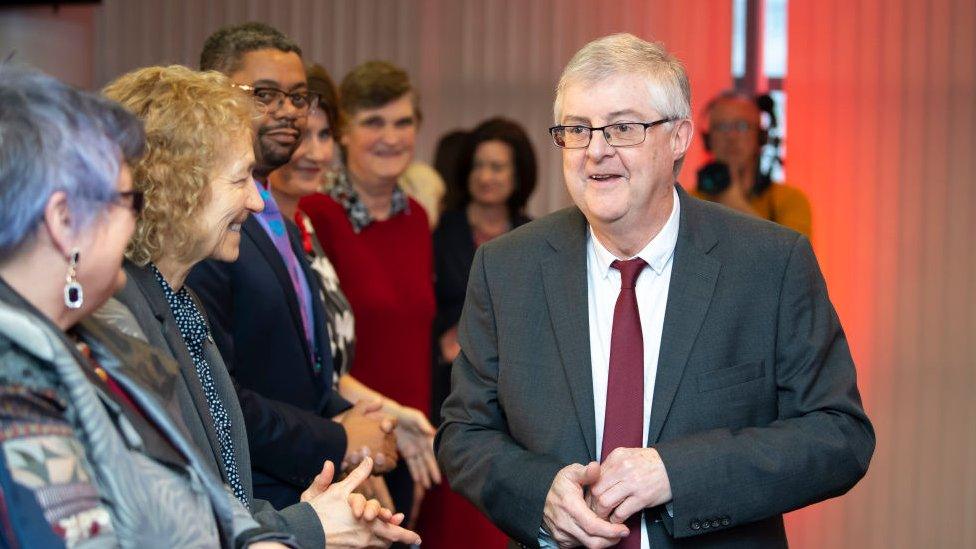
Mark Drakeford became Welsh Labour leader in 2018
Not long after taking power, Mark Drakeford scrapped £1.6bn plans for an M4 relief road around Newport, because of the cost and impact on the environment.
Roads policy became something of a thorny issue for his government.
Labour politicians, including Mr Drakeford himself, voting for a Welsh Parliament motion criticising their own roads review has been just the latest example.
But much of his time in office, and our lives, have been dominated by Covid-19 and its consequences.
In January, his world was overshadowed by the sudden death of his wife, Clare.
Condolences were paid across the political spectrum, and he said he was "grateful for the many kind words" during an "incredibly difficult" period for his family.
Mr Drakeford, who was 69 in September, has previously said he would hand over to a successor mid-way through this Senedd term.
He has now put that plan into action, and effectively fired the starting pistol on the race to become the fifth first minister of Wales.

A POSITIVE LIFE: HIV from Terrence Higgins to today
ACID DREAM: The Welsh farmhouse that sparked a revolution of the mind

Related topics
- Published13 December 2023
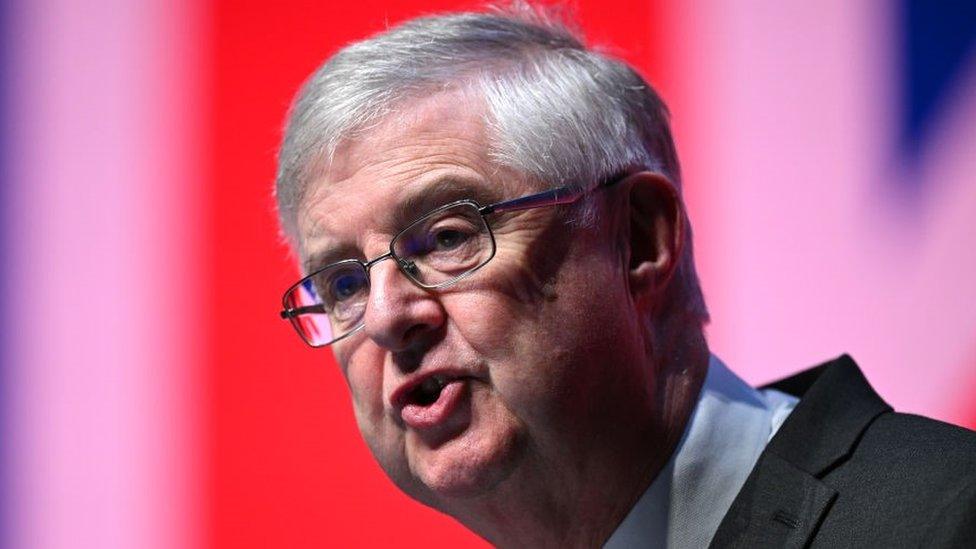
- Published13 December 2023
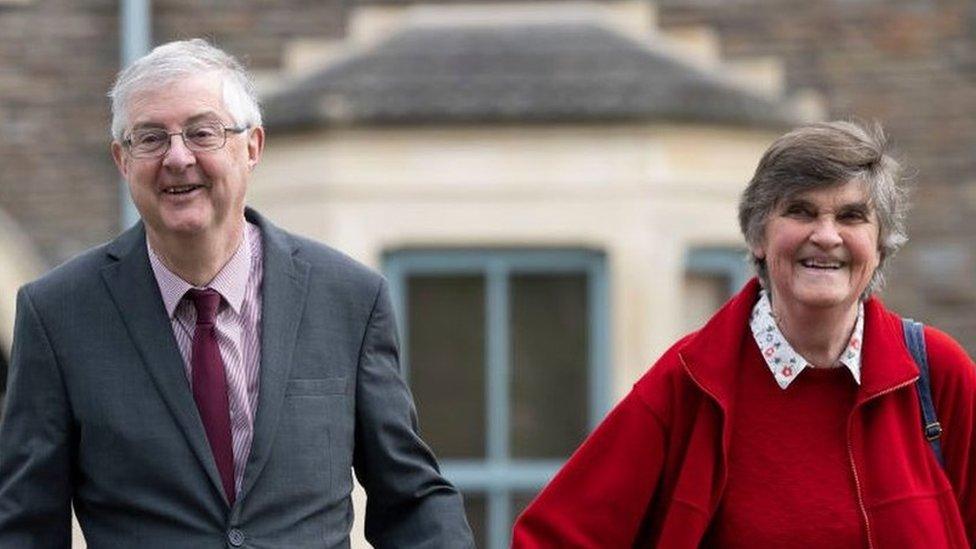
- Published8 December 2023
